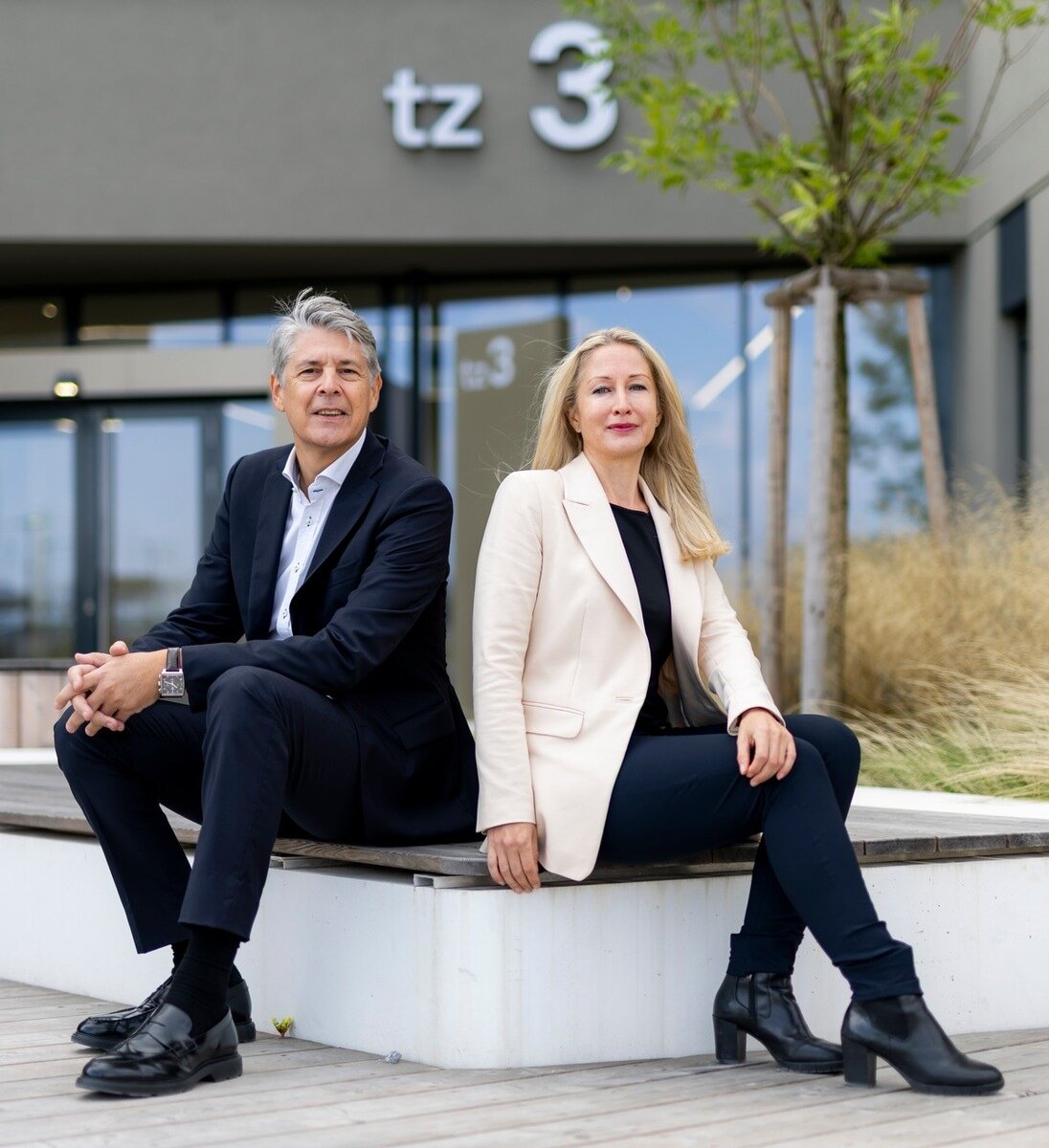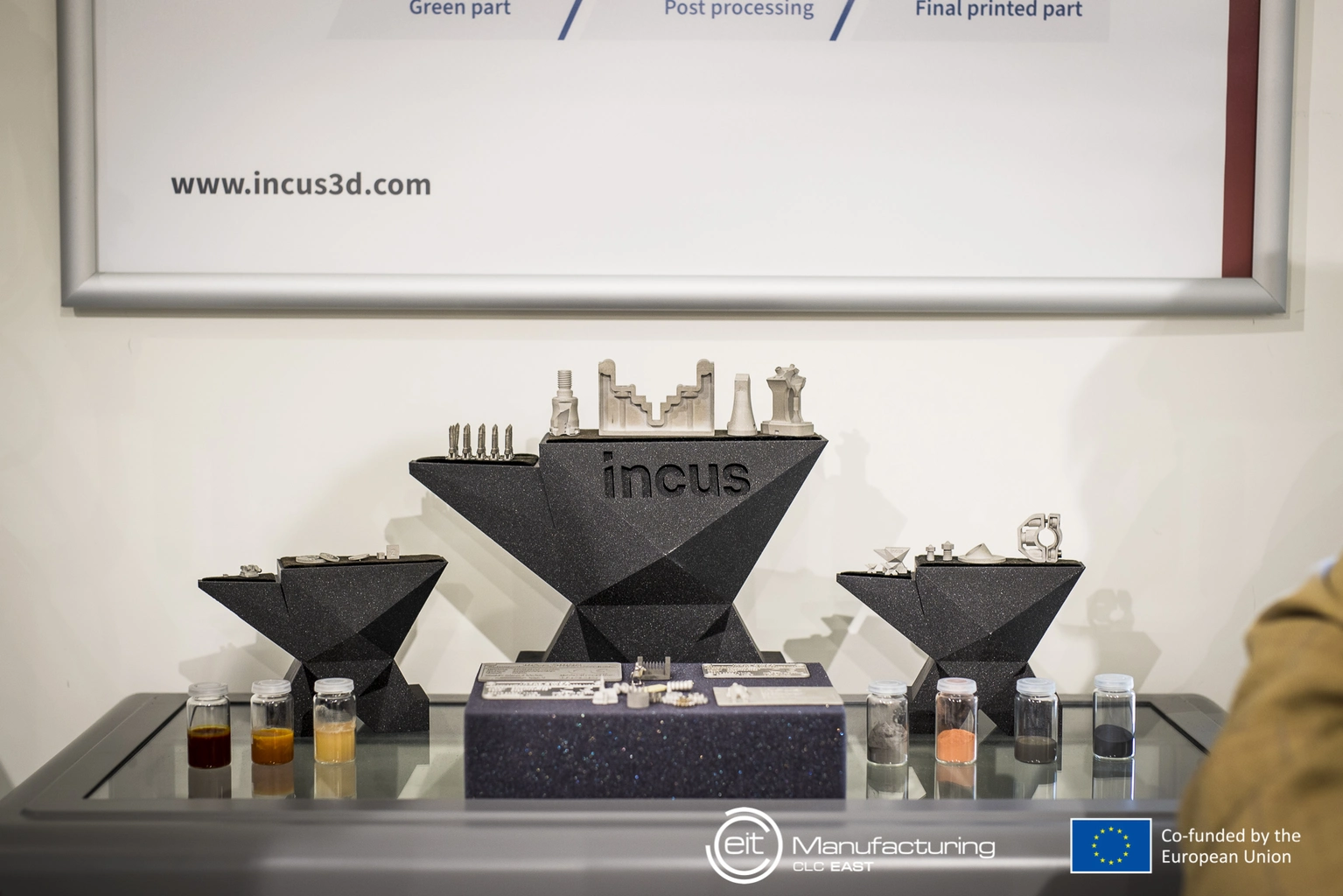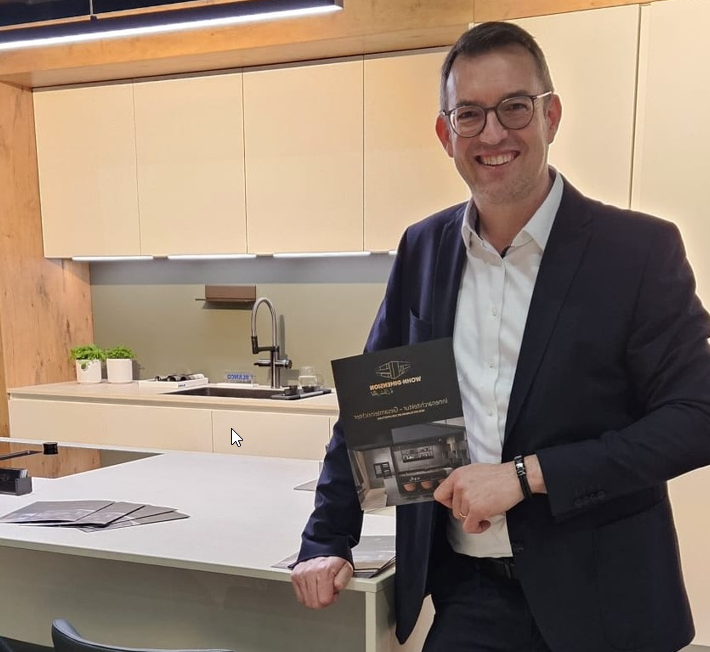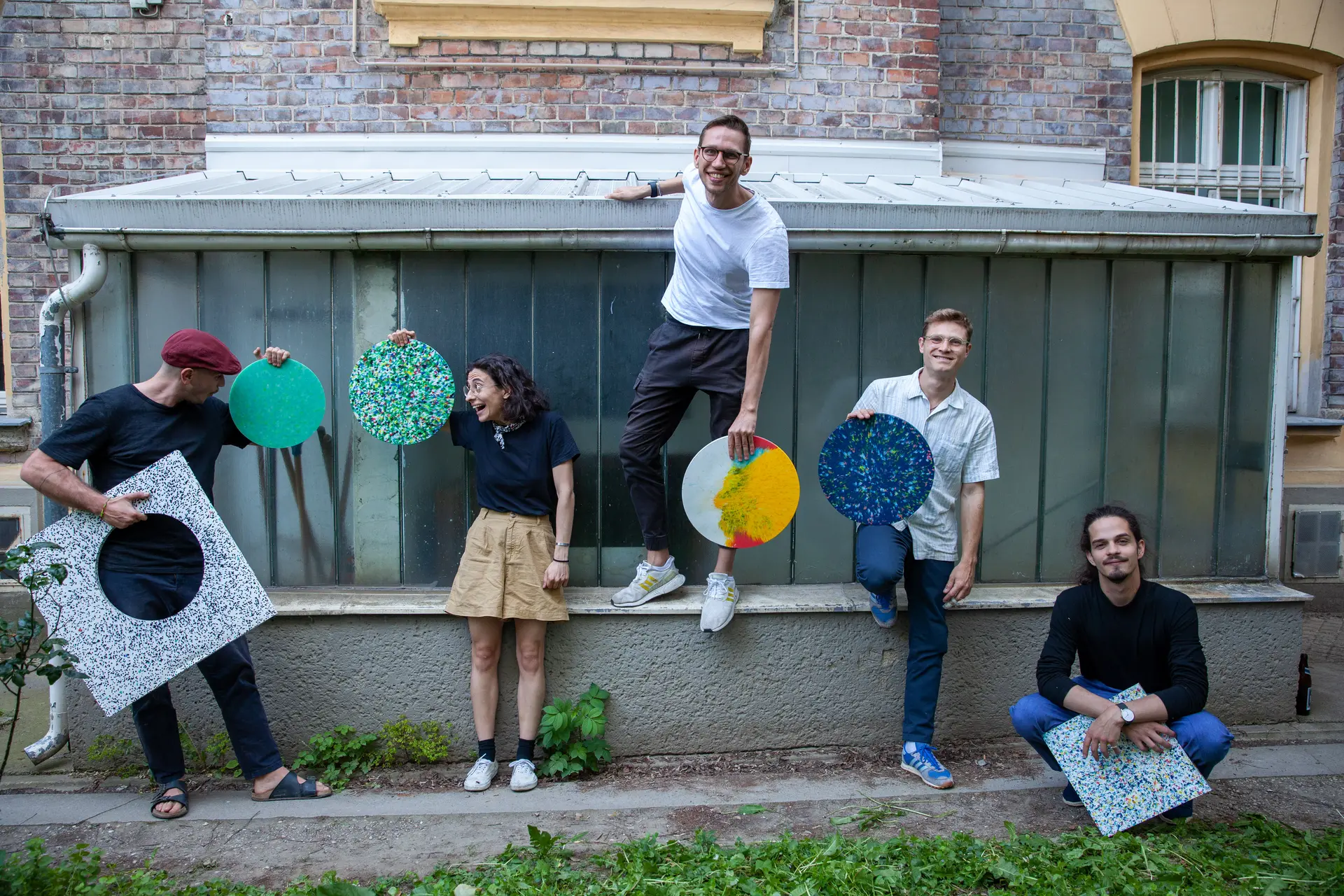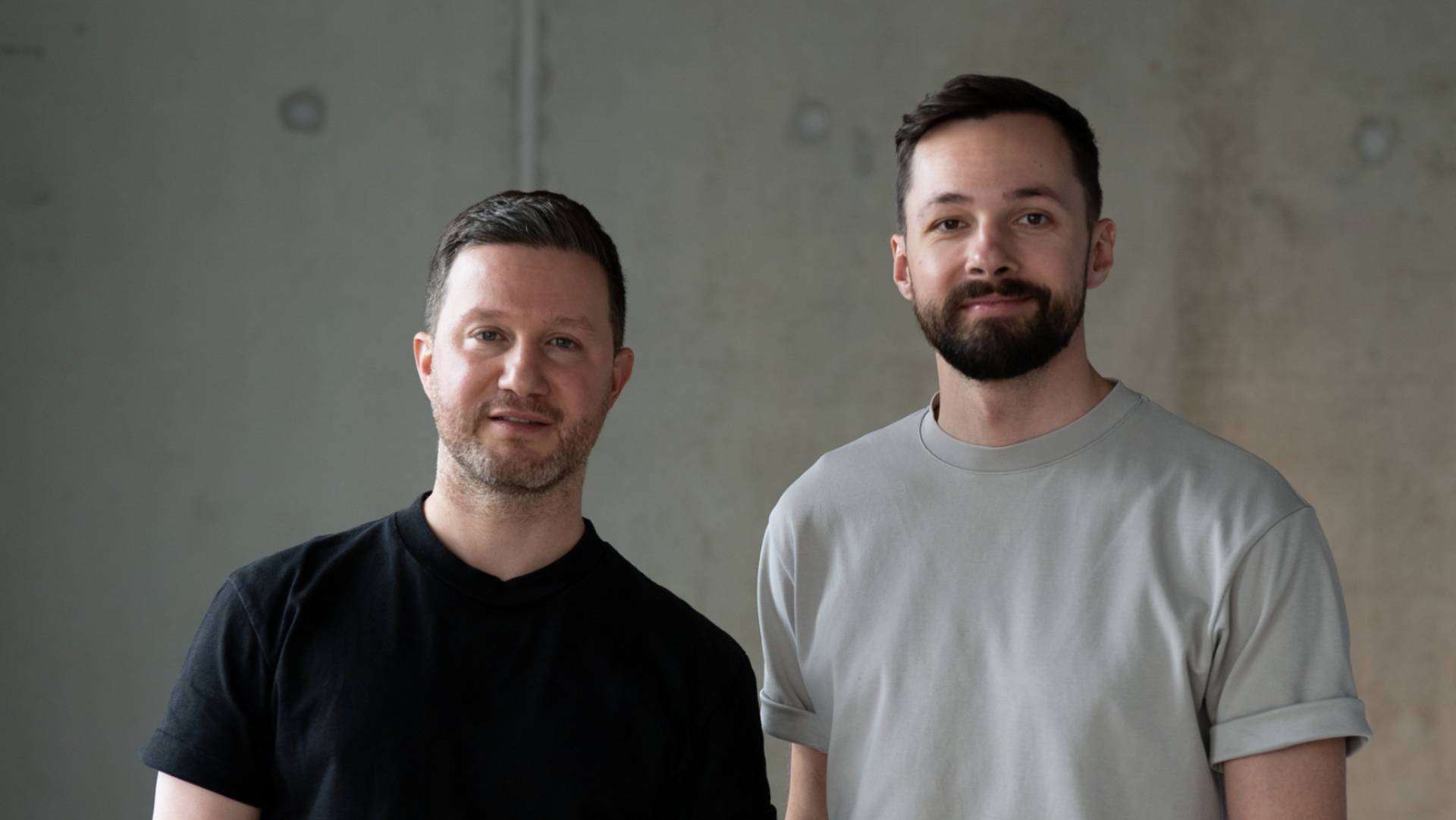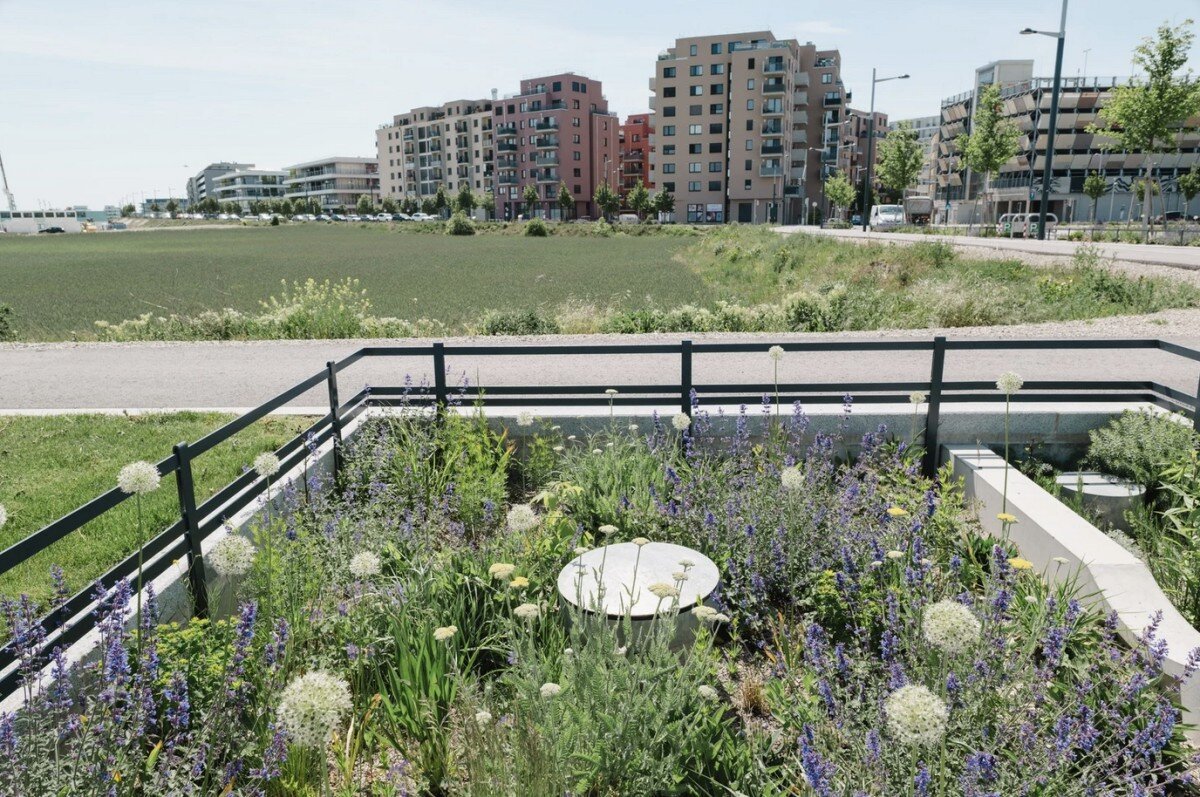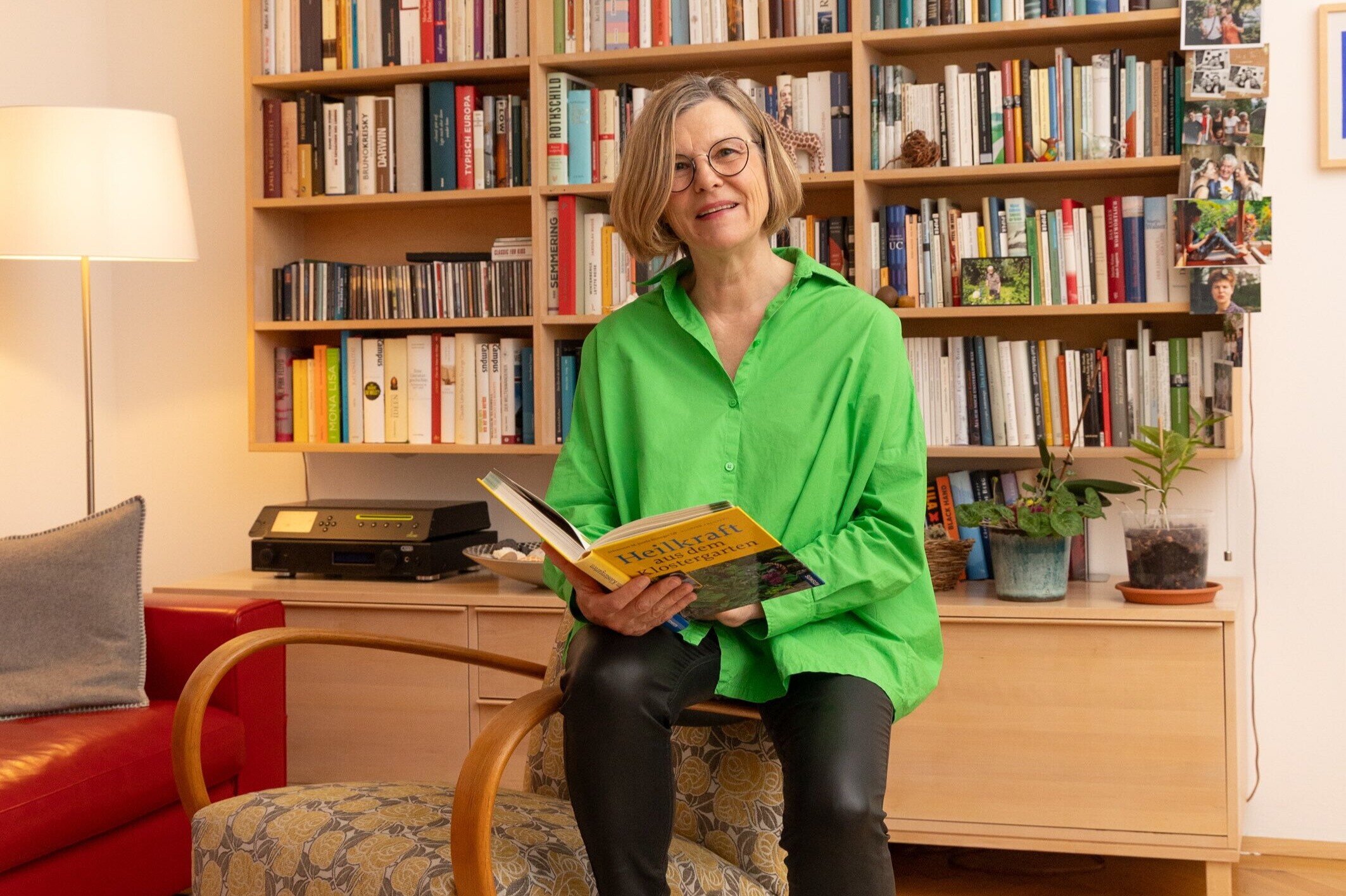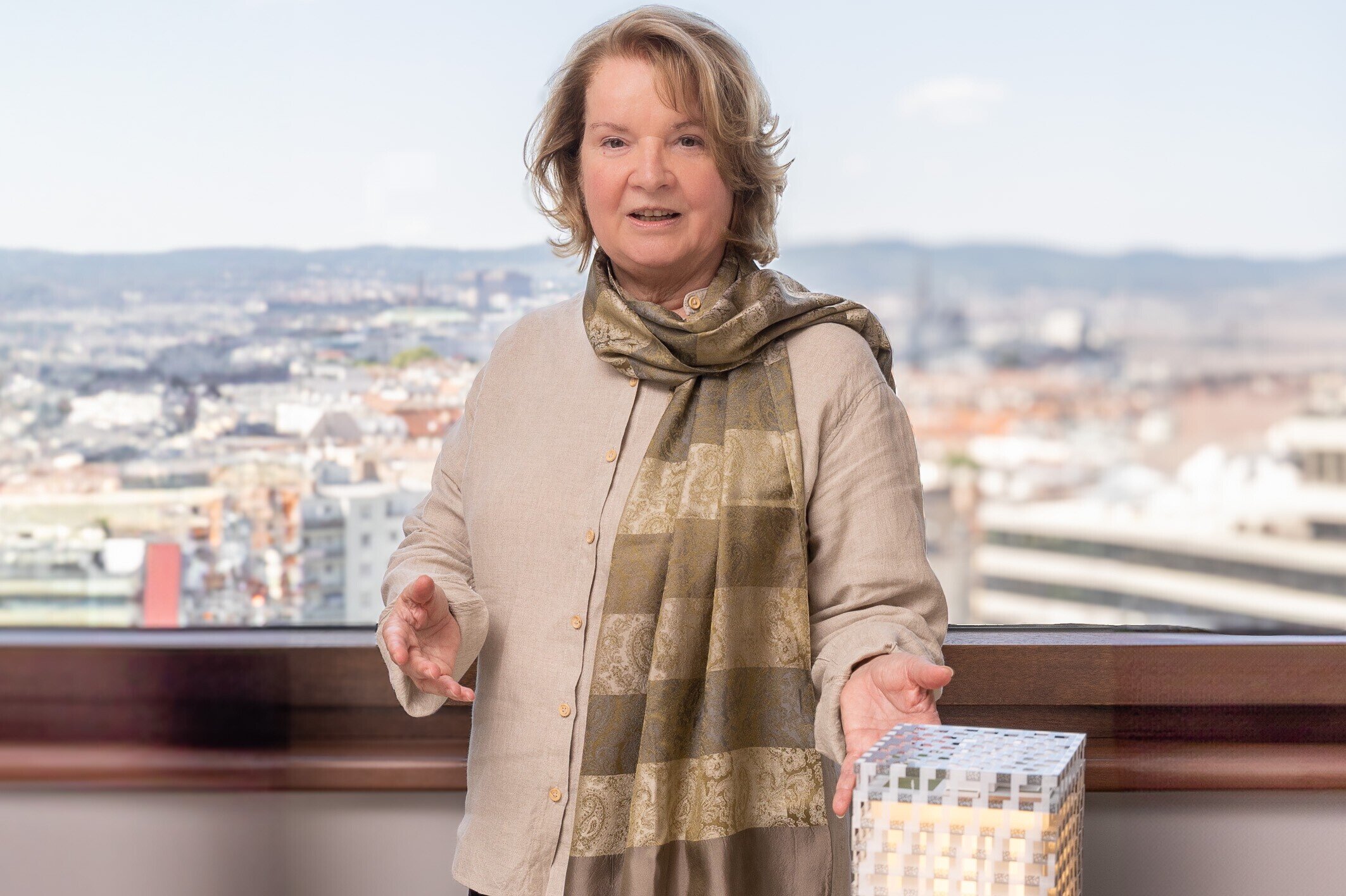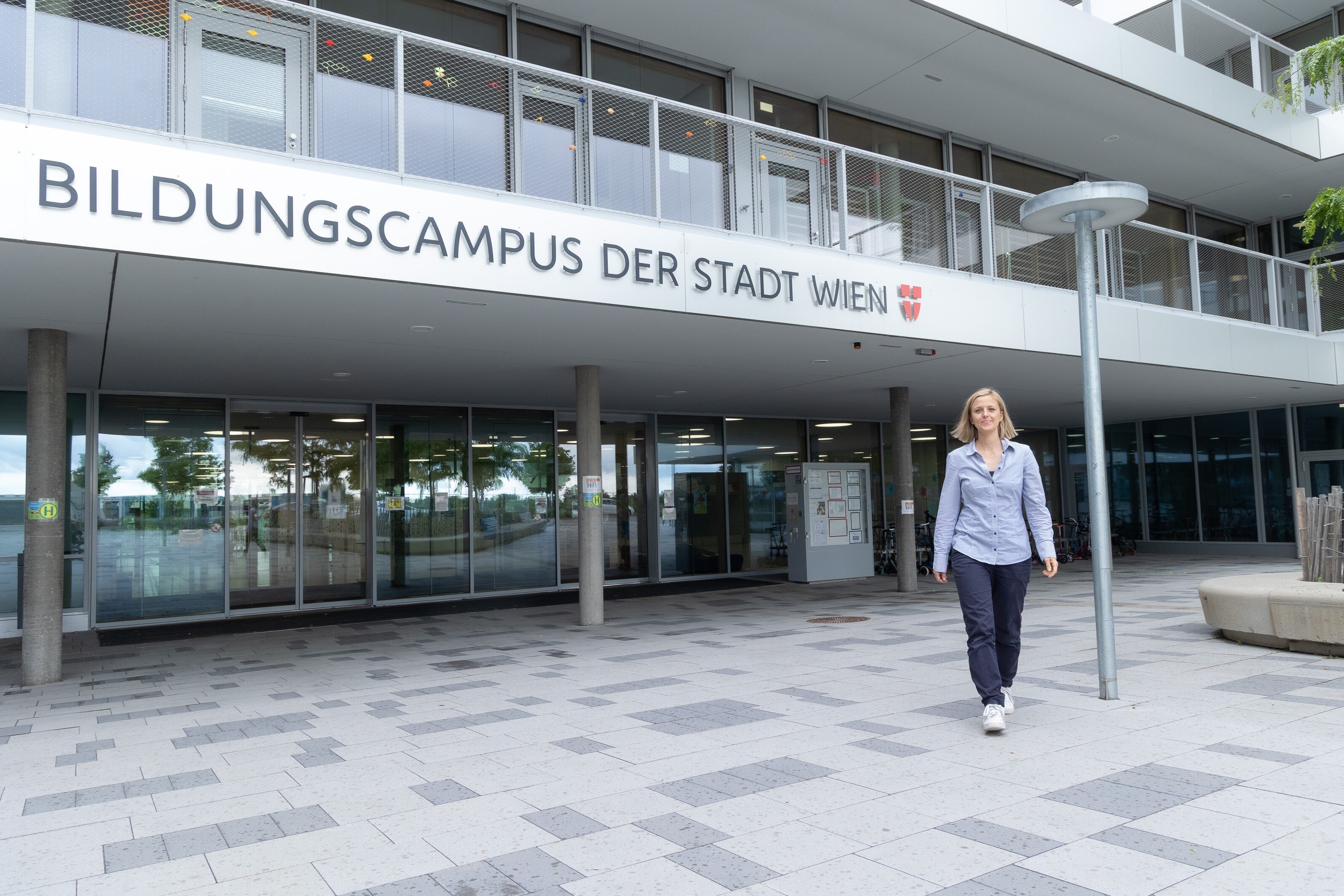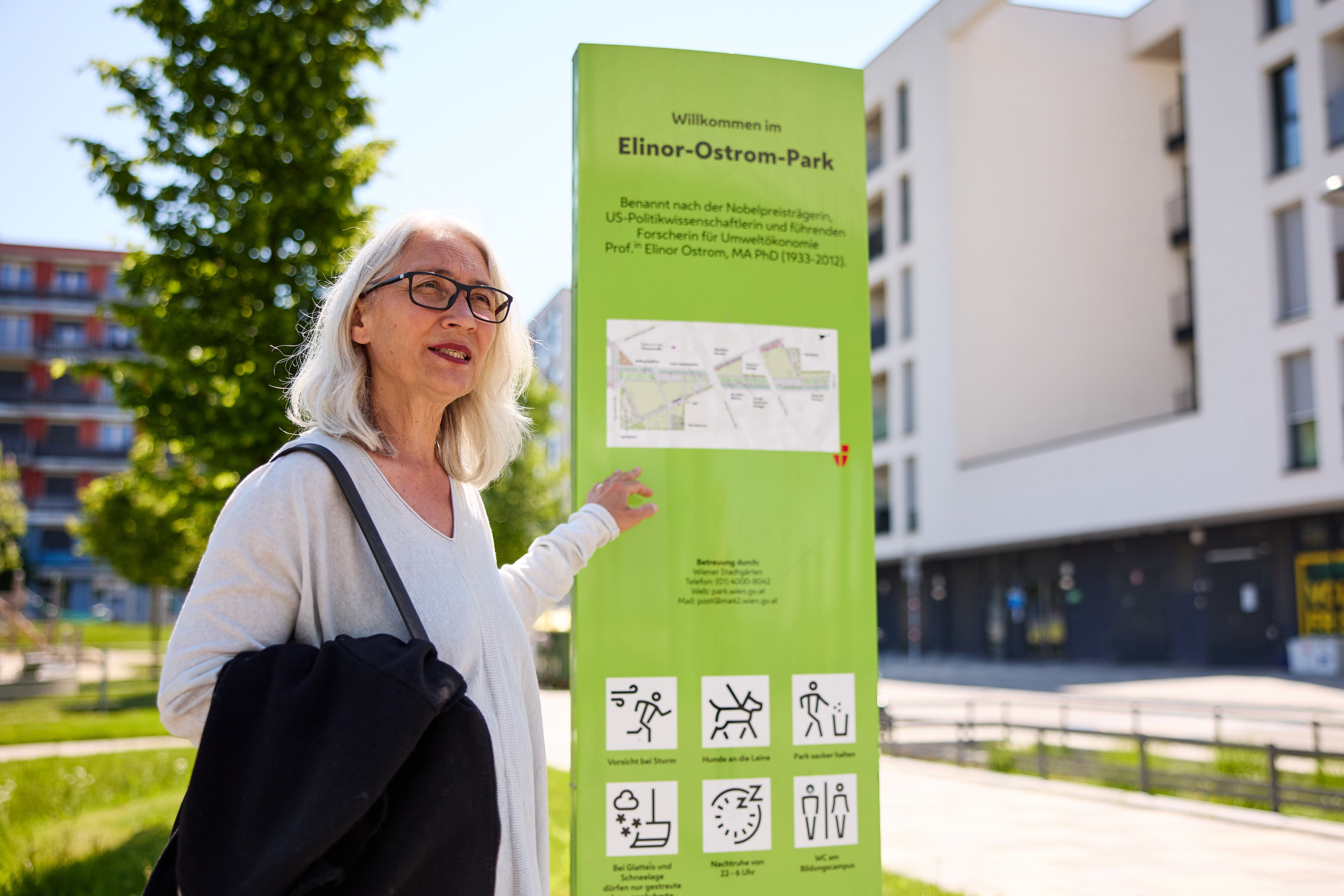Author
Christian Lenoble
Published on 09.07.2021
From the business magazine "Workflow"
2025 Inner:City
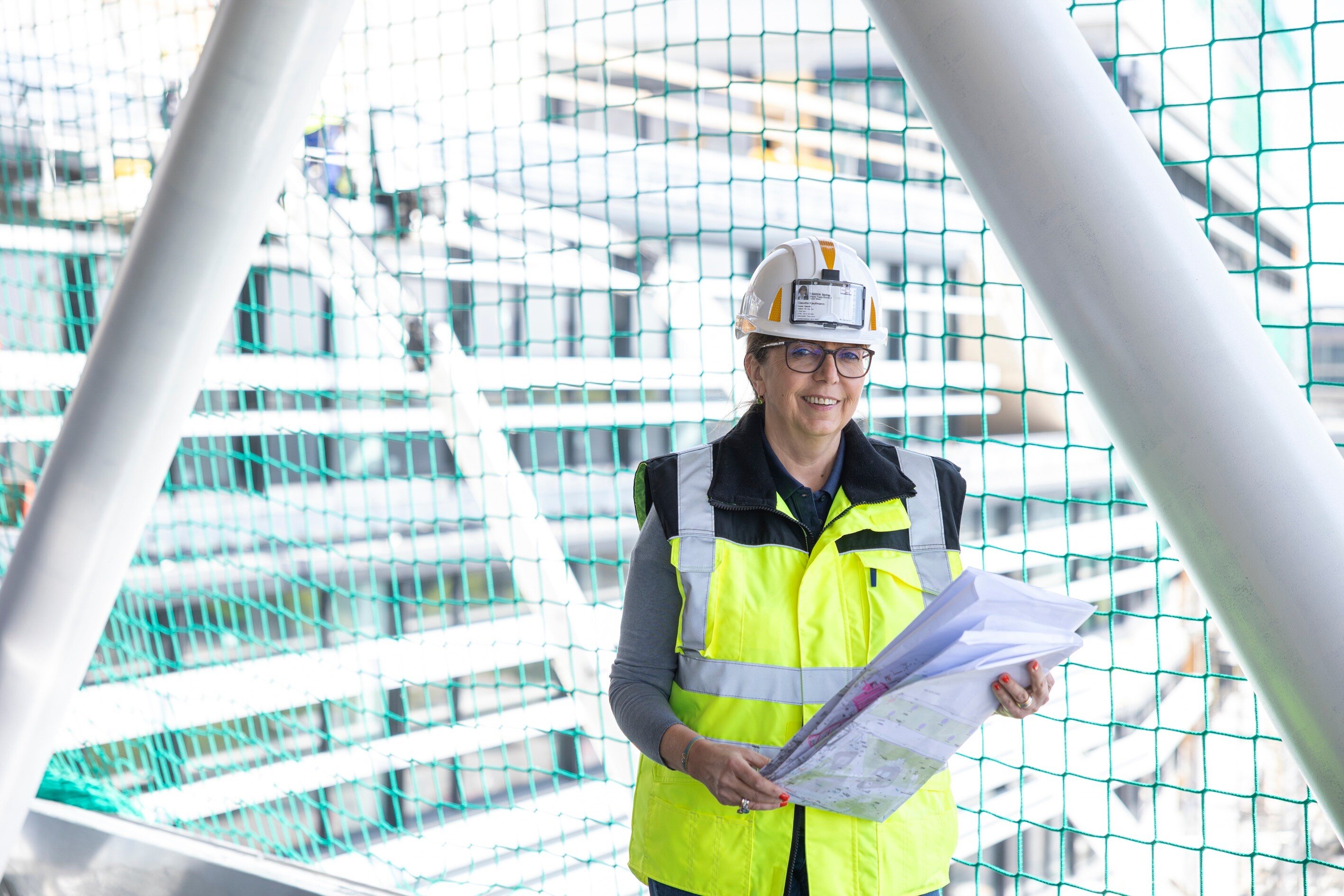
About the Person
After completing her studies at the Higher Technical Institute for Biochemistry and Biotechnology in Vienna, Claudia Kaufmann began her professional career in 1987 as a laboratory research technician at the Immuno AG R&D Center in Orth an der Donau. She entered project management in 1999 at Baxter AG (formerly Baxter Vaccine AG) as a project manager for laboratory construction for clinical vaccine batches. Currently, Claudia Kaufmann works at Takeda (Baxalta Innovations GmbH) as Director Project Management R&D Facility (R&D Business Operations).
Interview
You are the project manager for the construction of the so-called "Lab of the Future." What are the key facts about this project and what visions are associated with it?
Claudia Kaufmann: The project involves constructing a building with five above-ground floors and three underground levels, covering a total net floor area of around 28,000 square meters, built to the highest ecological standards. The building will provide laboratory, office, and conference spaces, as well as a flexible and modular laboratory area. A demo lab for universities and start-ups is also planned to foster collaborations in the new building. The new facility is Takeda's largest investment in a research and development project in Austria and will become home to up to 250 researchers working on innovative therapies for diseases that currently have no or only inadequate treatment options.
What are your responsibilities as a project manager?
Claudia Kaufmann: The project team under my leadership is responsible for controlling and coordinating the planning and execution, including all construction and business permits from local authorities, logistics, commissioning, qualification regarding regulatory requirements, and the quality assurance systems of Good Laboratory Practice (GLP) and EHS (Environmental, Health and Safety), etc. It also involves managing the flow of materials and personnel for around 3,000 existing laboratory devices and more than 200 Takeda employees into the finished building, as the building project is followed by a separate "relocation project."
How did you come to be entrusted with such a major project?
Claudia Kaufmann: I am a biochemist by training. After graduating from the HTL in Biochemistry and Biotechnology, I worked for many years in the lab and in research in Orth an der Donau. I was fortunate to have a mentor who valued personality and performance, gave me freedom, and gradually entrusted me with more responsibility. I then started leading a department as Laboratory Supervisor, and since every project always involved some modification of the facilities, over time—around the turn of the millennium—this led to managing projects. So my path led me from operational lab management into project management.
Have you completed any special training?
Claudia Kaufmann: Practical experience is invaluable in project management. Over the years, I have taken advantage of numerous training and development opportunities within the company, but I have found:
Real learning takes place through direct application in practice.
Claudia Kaufmann
How important is specific industry knowledge?
Claudia Kaufmann: I think having a comprehensive overview is very important. With 30 years in the pharmaceutical industry, I can draw on a wealth of experience. I know the processes in labs and production areas from my own experience. This practical knowledge helps. So, my passion for leading cross-functional teams is combined with the know-how of how to achieve ambitious goals in the pharmaceutical industry. Without industry-specific expertise, it would be much more complicated. If I had to manage a large IT project, for example, with little detailed knowledge of operational backgrounds, I would probably find it more difficult.
What makes a good project manager?
Claudia Kaufmann: First and foremost, communication skills. You need to be able to approach people, talk to each other, bring people to the table, and not be afraid of conflicts that arise at work. Addressing negative issues clearly is essential. Sweeping things under the rug to avoid a difficult situation does not pay off in the long run.
So avoiding conflict does not mean avoiding stress?
Claudia Kaufmann: No, in the long run, avoidance strategies tend to lead to problems and thus to stress. Imagine that in a large project, I am constantly in contact with around 100 people. There is the core project team, general planners, user representatives, internal and external specialists, staff from the construction companies, people responsible for finance, safety, and management, representatives from authorities, banking partners, etc., all of whom have different opinions and interests. Not addressing this to find the best way forward together would be negligent.
And what if communication still doesn't work?
Claudia Kaufmann: Then you also have to be prepared to take consequences. What I personally cannot accept, for example, is dishonesty. If such behavior is repeated, it may be necessary to part ways with people in the team or with partners.
How do you deal with communication and conflict stress?
Claudia Kaufmann: I am well organized and take enough time to prepare for conversations. You also need a certain basic resilience. And I have learned that it is important to delegate trustfully. I have to admit that this is not always easy when you have high standards for yourself and for the outcome of your work. But it is necessary.
Does delegating conflict with your own desire for perfectionism?
Claudia Kaufmann: Always expecting 100 percent is not necessarily productive. Sometimes you have to accept 70 percent in order to move forward. Over time, I have learned that sometimes you need the courage to leave gaps.
Does it take courage to assert yourself as a woman in a male-dominated environment?
Claudia Kaufmann: It's not a given. I had to learn to assert myself as a woman on construction sites or in meetings. Sometimes it's about interesting psychosocial details. For example, in a large construction meeting, it's important to choose the right seat at the table. A general planner friend made it clear to me early on that, as the client, I shouldn't sit somewhere on the edge, but centrally, so that I am in the spotlight and have an overview.
Has the "game" between women and men in the professional context changed in recent years?
Claudia Kaufmann: A lot has definitely changed. In the past 30 years, women have made enormous progress in terms of equality and appreciation in companies. Despite this equality, there is still room for improvement, especially in behaviors and subtle interactions. Here, it will be important to continue setting clear boundaries, promoting respectful interaction, and working towards change.
As a mother of two, you are also needed at home. How do you balance a highly demanding job and family life?
Claudia Kaufmann: I have been lucky to always have family support. My parents, parents-in-law, and my wonderful husband deserve great thanks. And of course, clear communication is also important in the family. The children knew that from Monday to Thursday there was "little mom," but there were other caregivers. At the same time, it was always important to me not to miss special private events. For me, family and career were compatible.

